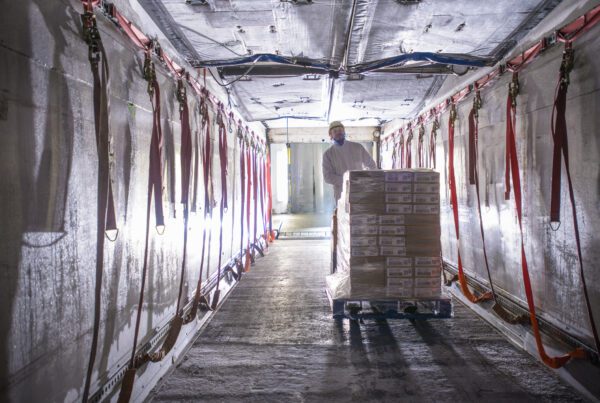Over 10 million pounds of asparagus is exported annually with the bulk of movement occurring between January and March. The global asparagus market is estimated to grow at a compound annual growth rate of 4.8% between 2020 – 2025. The annual growth rate, according to data from the Ministry of Agriculture, Livestock, Rural Development, Fisheries, and Food, of Mexico’s crops stands at 13.6%.
The year-round domestic demand for organic asparagus in the US outpaces the supplies from Mexico annually, which prompted interest in local production. This, in turn, will drive the global asparagus market in the upcoming years. In 2019, Europe continued dominating the demand for asparagus, importing a total of 121,229 metric tons of asparagus, up almost 8% from 2017.
Transporting asparagus requires controlled atmospheric conditions – elevated CO2 levels are kept at 5-10% (usually around 7%) in the air to prevent decay and reduce the rate of toughening of the spears. Short exposure to higher CO2 concentrations (12-20%) is safest only if the temperatures can be maintained at 0 – 1 degrees Celsius. Signs of CO2 injury include small to elongated pits just below the tops, or even ribbing when severely injured – oxygen levels below 2% are at risk for odors and discolorations. In damp weather, the asparagus must be protected from moisture; otherwise, there is a risk of premature spoilage or the spears becoming rubbery / mushy.
Due to the impact and pressure sensitivity of fresh asparagus, packages must be adequately secured in transit to prevent them from damaging each other. Spaces between packages and pallets must be filled to prevent slipping or tipping. Cargo handlers must operate with great care during both transport and storage to avoid spoilage. Between our unparalleled perishable logistics experience and a vast worldwide network of strategic partnerships, our state-of-the-art CoolSkys layers approach, and cutting-edge coolant solutions, our dedication to protecting the temperature integrity of your perishable cargo is unmatched in the world.
Here at CFI, we want to make sure that your cargo arrives safely and at the peak of freshness to maximize shelf life and taste. We go above and beyond to make sure that your cargo is handled with the utmost care and consideration possible. We understand how precious and time-sensitive your perishable cargo is, so we work tirelessly to make sure that your product is moved expeditiously from farm to family. If your perishable product needs the expertise of a global expert with decades of experience and knowledge, reach out to your CFI representative today.




